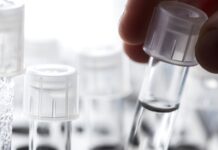Good Meal for Pregnant Woman – MediUpdates article – Pregnancy is an exciting and joyous time for expectant mothers, but it can also be a time of uncertainty and confusion, especially when it comes to nutrition. The foods that a pregnant woman eats can have a significant impact on the health of both her and her developing baby. It is important for expectant mothers to understand the nutritional needs of pregnancy and to make informed choices about their diet. In this article, we will explore the best foods to eat during pregnancy, the nutrients that are essential for a healthy pregnancy, and tips for maintaining a healthy diet throughout pregnancy.
Nutritional Needs During Pregnancy
Essential Nutrients
During pregnancy, a woman’s body goes through many changes, and her nutritional needs increase significantly. The most important nutrients for pregnant women include protein, iron, calcium, and folic acid.
Protein is essential for the growth and development of the baby’s muscles, tissues, and organs. Good sources of protein include lean meats, fish, eggs, and dairy products.
Iron is important for the production of red blood cells, which are essential for oxygen transport to the baby. Good sources of iron include red meat, poultry, fish, and leafy green vegetables.
Calcium is necessary for the growth and development of the baby’s bones and teeth. Good sources of calcium include dairy products, leafy green vegetables, and fortified foods.
Folic acid is important for the development of the baby’s neural tube, which becomes the brain and spinal cord. Good sources of folic acid include leafy green vegetables, fortified cereals, and supplements.
Recommended Daily Allowances – Good Meal for Pregnant Woman
The recommended daily allowances for these essential nutrients during pregnancy are as follows:
- Protein: 71 grams per day
- Iron: 27 milligrams per day
- Calcium: 1000 milligrams per day
- Folic acid: 600 micrograms per day
It is important to note that these recommendations may vary based on individual needs and health conditions. Expectant mothers should consult with their healthcare provider to determine the appropriate daily allowances for their specific needs.
Best Foods to Eat During Pregnancy
Fruits and Vegetables – Good Meal for Pregnant Woman
Fruits and vegetables are essential for a healthy pregnancy diet. They are rich in vitamins, minerals, and antioxidants, which are essential for the growth and development of the baby. Some of the best fruits and vegetables to eat during pregnancy include:
- Berries (strawberries, blueberries, raspberries)
- Citrus fruits (oranges, lemons, limes)
- Leafy greens (spinach, kale, lettuce)
- Cruciferous vegetables (broccoli, cauliflower, cabbage)
- Squash and pumpkin
Whole Grains – Good Meal for Pregnant Woman
Whole grains are an important source of carbohydrates, which provide energy for the mother and baby. They also provide important nutrients such as fiber, B vitamins, and minerals. Some of the best whole grains to eat during pregnancy include:
- Whole wheat bread and pasta
- Oatmeal
- Quinoa
- Brown rice
- Whole grain cereals
Lean Proteins – Good Meal for Pregnant Woman
Lean proteins are essential for the growth and development of the baby’s muscles, tissues, and organs. Some of the best sources of lean protein to eat during pregnancy include:
- Fish (salmon, tuna, and other oily fish)
- Chicken and turkey
- Lean cuts of beef and pork
- Eggs
- Beans and lentils
It is important to note that pregnant women should avoid certain types of fish, such as swordfish, mackerel, and tilefish, as they may contain high levels of mercury. Pregnant women should also avoid raw or undercooked meats, fish, and eggs to reduce the risk of foodborne illness.

Tips for Maintaining a Healthy Diet During Pregnancy
Meal Planning – Good Meal for Pregnant Woman
Meal planning is an effective way to ensure that pregnant women are getting the essential nutrients they need. Expectant mothers should plan to include a variety of fruits, vegetables, whole grains, and lean proteins in their diet. It’s also important to limit processed and high-calorie foods and to stay hydrated.
Supplements – Good Meal for Pregnant Woman
While it’s always best to get nutrients from food, in some cases, pregnant women may need to take supplements to meet their needs. For example, pregnant women may need to take iron or folic acid supplements if they are not getting enough from their diet. Expectant mothers should always consult with their healthcare provider before taking any supplements.
Food Safety – Good Meal for Pregnant Woman
Pregnant women should take extra precautions to ensure that the foods they eat are safe. This includes washing fruits and vegetables thoroughly, cooking meats and fish to the appropriate temperature, and avoiding raw or undercooked foods. It’s also important to avoid certain foods that are high in mercury or bacteria, such as certain types of fish, raw sprouts, and deli meats.
Conclusion
Good meal for pregnant women is essential for the growth and development of both the mother and the baby. Pregnant women should focus on getting enough protein, iron, calcium, and folic acid, as well as a variety of fruits, vegetables, whole grains, and lean proteins. Meal planning, supplements, and food safety are important considerations for maintaining a healthy pregnancy diet. Expectant mothers should always consult with their healthcare provider to determine their specific nutritional needs and to ensure a healthy pregnancy.
FAQs – Good Meal for Pregnant Woman
Q: How much protein do pregnant women need?
A: Pregnant women need 71 grams of protein per day.
Q: What are good sources of iron for pregnant women?
A: Good sources of iron for pregnant women include red meat, poultry, fish, and leafy green vegetables.
Q: Is it safe to eat sushi during pregnancy?
A: It is generally safe for pregnant women to eat sushi made with cooked fish, but raw fish should be avoided as it may contain bacteria or parasites that can cause foodborne illness.
Q: What foods should pregnant women avoid?
A: Pregnant women should avoid certain types of fish, such as swordfish, mackerel, and tilefish, as they may contain high levels of mercury. Pregnant women should also avoid raw or undercooked meats, fish, and eggs to reduce the risk of foodborne illness.
Q: Can I take supplements during pregnancy?
A: Expectant mothers should always consult with their healthcare provider before taking any supplements. Some women may need to take iron or folic acid supplements if they are not getting enough from their diet.





